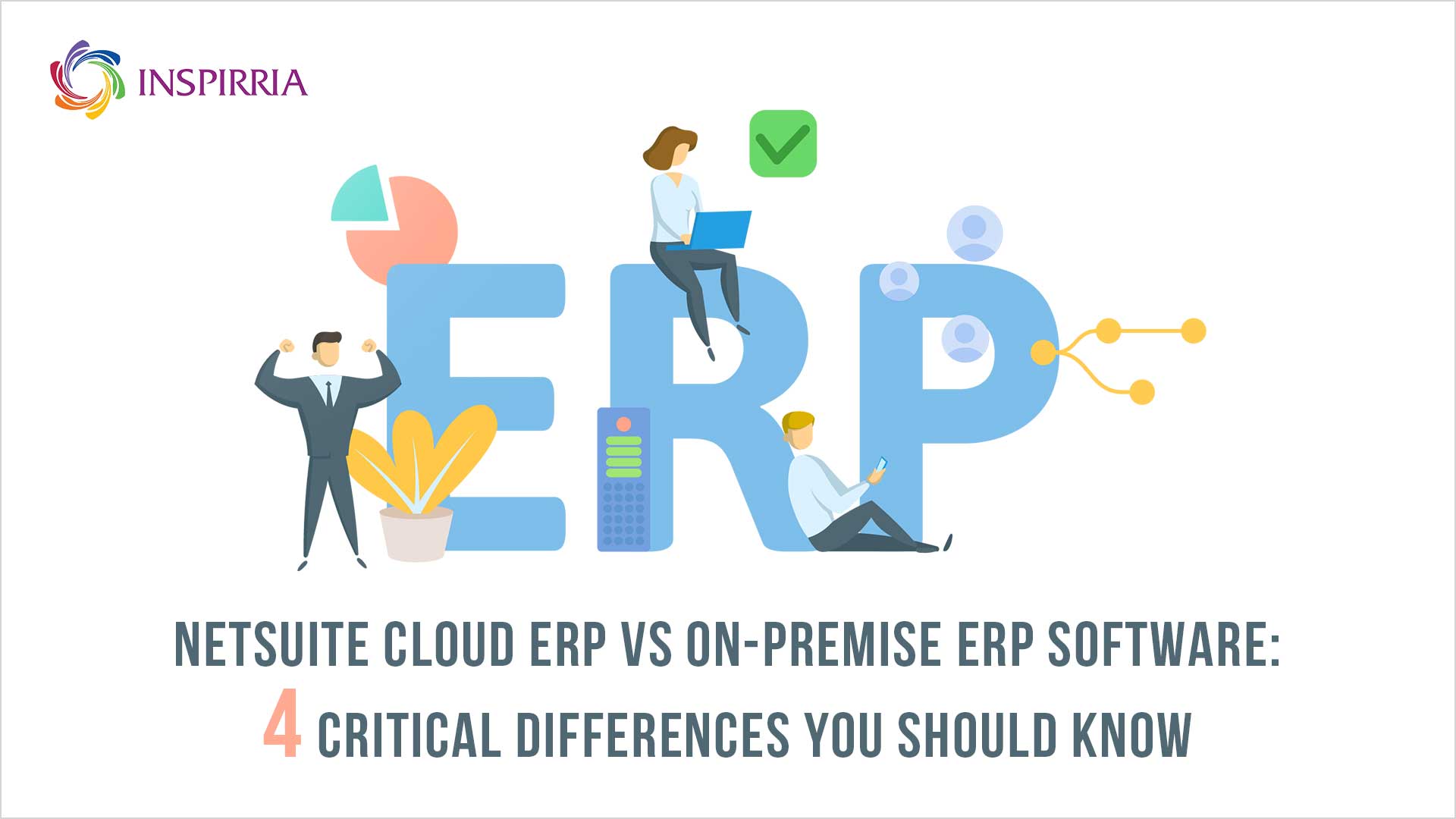Moving from On-Premise to Cloud ERP – the Mantra for Business Success in post Lockdown

The spread of Covid–19 has disrupted and impacted businesses throughout the world. Today, when you need to focus on growing your business and manage your cashflows, it’s important that you have the right ERP software deployed in your company which takes care of the front and back end operations in smooth and seamless manner. More planning is needed to ensure your company continues to function at a high level.
If your business operations are currently on on-premise ERP software then it’s the right moment to make the decision to move to Cloud ERP software like NetSuite. The reasons why you need to accept cloud as the new evolutionary software for your business in the current times is listed below:
On-premise ERP software is deployed on-site of the business operation, and heavily dependent on the local IT infrastructure and support mechanism. Whereas NetSuite cloud ERP software is managed centrally by the provider and customers can access the data using a web browser. There’s no need for desktop computers, servers, IT infrastructure and no need for storage space.
However, there are companies that are still ‘running’ their businesses on on-premise software, and are totally unaware about the magic of Cloud-based ERP which they can experience right now.
Here are 4 critical differences:
Stark Difference In Ownership Costs
For deploying on-premise ERP, the company needs to make heavy and ongoing investments to procure and maintain the software and related hardware, servers, and other facilities required to run it. The company will also need a large experienced IT staff to run the system which also includes maintenance of hardware, server rooms etc.
But with NetSuite Cloud ERP, the company is required to pay drastically less since the software is hosted on a Cloud, and the client is only required to pay a fee for accessing that ERP via your computer’s internet connection. NetSuite cloud ERP provider maintains the IT infrastructure and ensures the system is always up and running, the data is safe and secure. This also means the additional cost to invest in a large IT team to simply take care of the system is not required here. The IT team in the company can instead focus on helping the business grow rather than taking care of the software, hardware and server rooms etc.
NetSuite is SaaS or Software as a Service model which offers unique subscription-based access, wherein the business is only paying for the duration of usage. This brings down the overall ownership cost for the business, and the cash flows are always green.
Seamless System Upgrades Without Breaking Status Quo
In the case of on-premise ERP, whenever a new upgrade is required, all previous customizations get reset, and the entire software is re-deployed from scratch. Infact, this is the main reason why 66% of business owners refuse to upgrade their on-premise ERP, and risk their business operations.
Cloud ERP like NetSuite, on the other hand, is automatically upgraded by the provider to ensure you use the latest version of their ERP software. Moreover the previously implemented customizations and integrations are automatically carried forward during the upgrades and all this is part of the subscription cost itself. This also means NetSuite Cloud ERP users are always using the most advanced, cutting-edge version of their software.
Peak System Performance & Productivity
With Cloud ERP like NetSuite, businesses can be assured of peak performance and thus, maximum productivity. NetSuite promises 99.98% uptime performance on their Cloud servers.
For on-premise ERP, the local IT team is unlikely to make the software achieve these results and to make the uptime performance information available for the business users at all times is next to impossible.
It's very important to note that NetSuite Cloud ERP can be accessed via the internet anywhere at any time which means the staff at your company can see real time data on their laptops even while they travel or at home. To access the on-premise software, the team has to be physically present in the office at all times. The real time data is not available on on-premise software which can eventually delay business operations and decision making due to lack of data.
Stunning Speed Of Deployment
While on-premise ERP may take upto 12 months or more to get deployed, NetSuite Cloud ERP can be up and running between 3-6 months. Cloud ERP can be deployed simultaneously across various regions, subsidiaries, and divisions of a business, and users can be added or deleted instantly.
This speed of deployment for NetSuite Cloud ERP means that there is minimum loss of operations, and business is as usual up and running.
Many companies are turning to the cloud for delivery of their business system to lower their operating costs and strengthen their competitive advantage.
For more details, feel free to use this link to schedule a no-obligation session to discuss your business requirements and expectations from NetSuite Cloud ERP.


